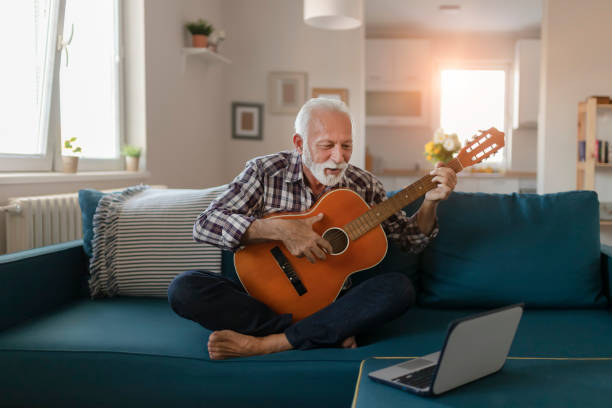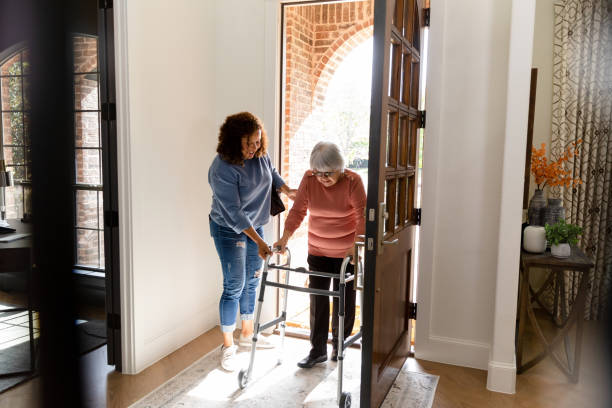Aging presents numerous challenges, but a key concern for many seniors is the ability to maintain independence while staying in the comfort of their own homes. As the population ages, it becomes increasingly important to explore and implement strategies that ensure seniors can live safely and confidently without needing to relocate to assisted living facilities.
By incorporating practical solutions, proactive planning, and leveraging available resources, seniors and their families can work together to foster an environment that promotes autonomy and enhances quality of life. This guide will delve into various effective strategies to help seniors preserve their independence at home.
Contents
Home Safety Modifications
Enhancing the safety of the home environment is crucial to helping seniors maintain their independence. Implementing various modifications can significantly reduce the risk of falls and improve overall security.
Fall Prevention
Falls are one of the most common and serious hazards for seniors living at home. To minimize this risk:
- Install Grab Bars: Place grab bars in bathrooms and near stairs to provide support.
- Remove Tripping Hazards: Keep pathways clear of clutter, secure loose rugs, and ensure good lighting throughout the home.
- Use Non-slip Mats: Place non-slip mats in the bathroom and kitchen.
Mobility Aids
Mobility aids can significantly enhance seniors’ ability to move around safely and confidently.
- Walkers and Canes: Provide support and stability.
- Wheelchairs and Scooters: These options can offer greater independence for those with more significant mobility issues.
- Stair Lifts: Install stair lifts to enable safe access to different levels of the home.
Home Security
Ensuring the home is secure can prevent potential threats and provide peace of mind.
- Install Security Systems: Use alarm systems, motion detectors, and security cameras.
- Automated Lights: Set up lights that turn on automatically in the evening or when someone enters a room.
- Smart Locks: Utilize locks that can be operated via smartphone for easier access control.
Emergency Preparedness
Being prepared for emergencies can save lives and reduce the severity of incidents.
- Medical Alert Systems: Equip the home with a medical alert system that allows for immediate emergency assistance at the touch of a button.
- First Aid Kits: Keep well-stocked first aid kits readily available.
- Emergency Contacts: Ensure that emergency contact numbers are easily accessible.
By implementing these home safety modifications, seniors can enjoy greater peace of mind and stability, which are fundamental to maintaining independence in their own homes.
Health and Wellness Strategies

Maintaining physical and mental health is essential for seniors to preserve their independence and improve their quality of life. Addressing health and wellness holistically can ensure that seniors remain active, engaged, and capable of handling everyday tasks.
Regular Exercise
Physical activity is critical for overall health and mobility.
- Low-Impact Exercises: Activities such as walking, swimming, and yoga can improve cardiovascular health without straining the joints.
- Strength Training: Incorporate light weights or resistance bands to strengthen muscles and improve balance.
- Flexibility Exercises: Stretching or tai chi can enhance flexibility and reduce the risk of injuries.
Proper Nutrition
A balanced diet supports overall health and can prevent chronic conditions.
- Balanced Meals: Ensure meals consist of a variety of fruits, vegetables, lean proteins, and whole grains.
- Hydration: Encourage consistent fluid intake to prevent dehydration.
- Dietary Supplements: Consult with a healthcare provider about the need for calcium, vitamin D, or omega-3 fatty acids supplements.
Medication Management
Proper management of medications is crucial for preventing adverse effects and ensuring efficacy.
- Medication Schedules: Use pill organizers or electronic reminders to keep track of dosages and timing.
- Regular Reviews: Have medications reviewed periodically by a healthcare professional to avoid interactions and adjust dosages as needed.
- Clear Labeling: Ensure all medications are clearly labeled with instructions and warnings.
Mental Health
Emotional and mental well-being significantly impacts the ability to live independently.
- Social Activities: Engage in social interactions through community centers, clubs, or online platforms.
- Hobbies and Interests: Pursue activities that bring joy and purpose, such as gardening, crafting, or reading.
- Mental Stimulation: Keep the mind active through puzzles, games, or learning new skills.
Access to Healthcare
Consistent access to medical care is fundamental for managing health conditions.
- Regular Check-ups: Schedule and attend routine medical appointments for early detection and management of health issues.
- Telehealth Services: Utilize telehealth options for convenient access to healthcare professionals from home.
- Transportation Services: Arrange for reliable transportation to and from medical appointments if needed.
By focusing on these health and wellness strategies, seniors can maintain their physical and mental well-being, thereby supporting their ability to live independently in their own homes.
Conclusion
With the right support and resources, seniors can continue leading fulfilling and independent lives in their homes. By implementing effective home safety modifications and addressing health and wellness needs, seniors can maintain a sense of autonomy and thrive in their daily lives. Remember, independence is not about doing everything on your own; it’s about having the freedom to make choices that align with personal preferences and values.

